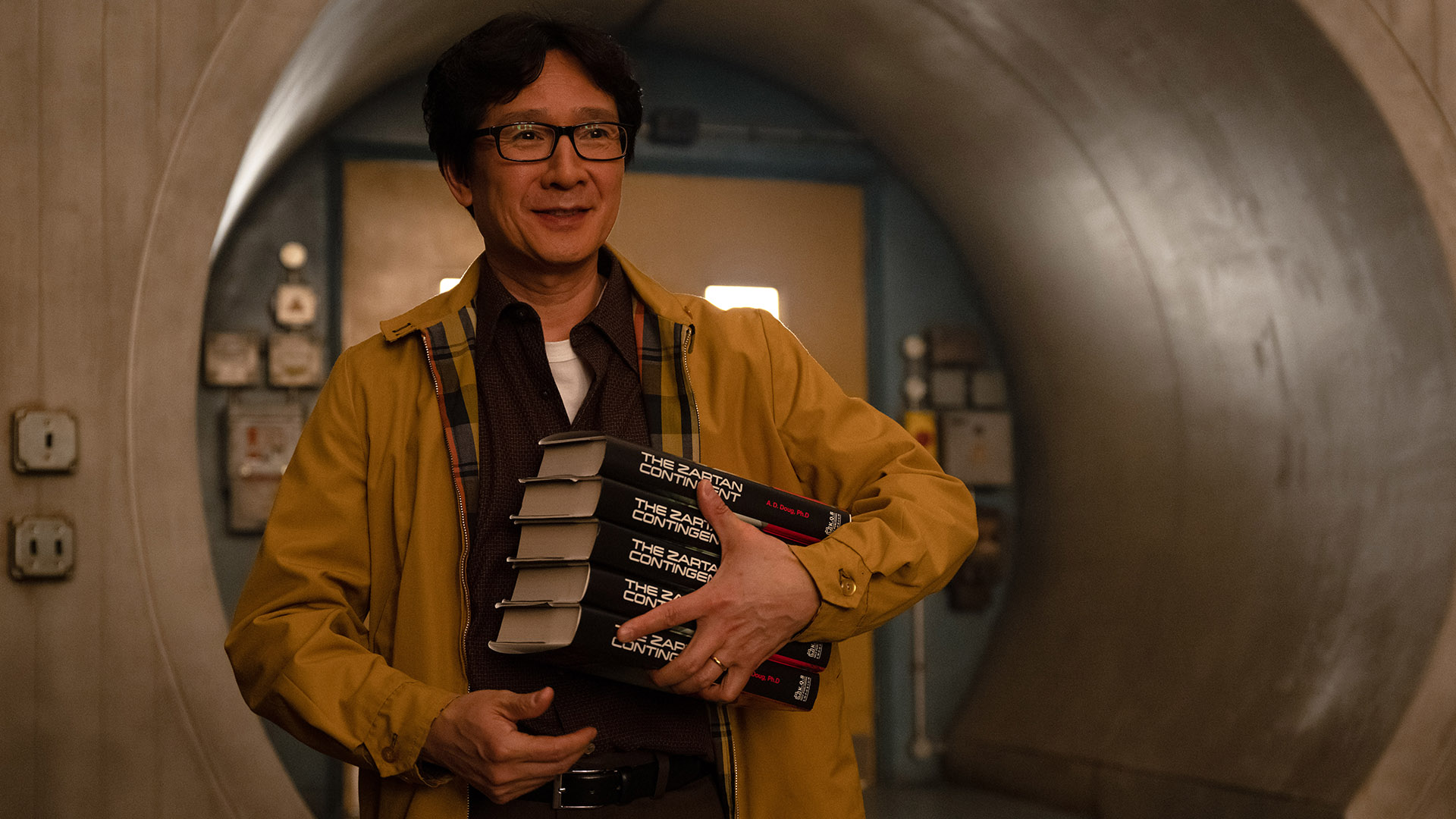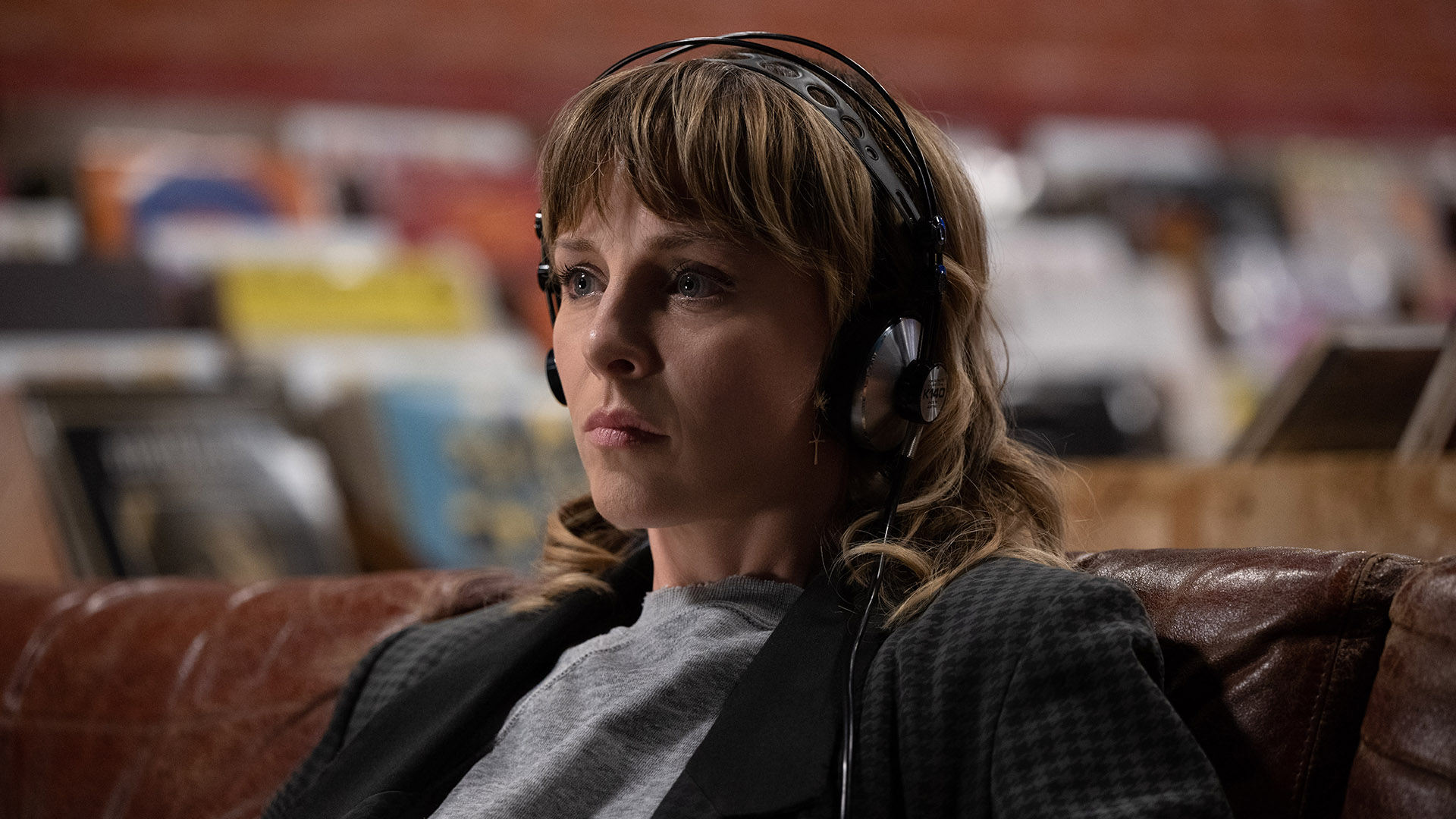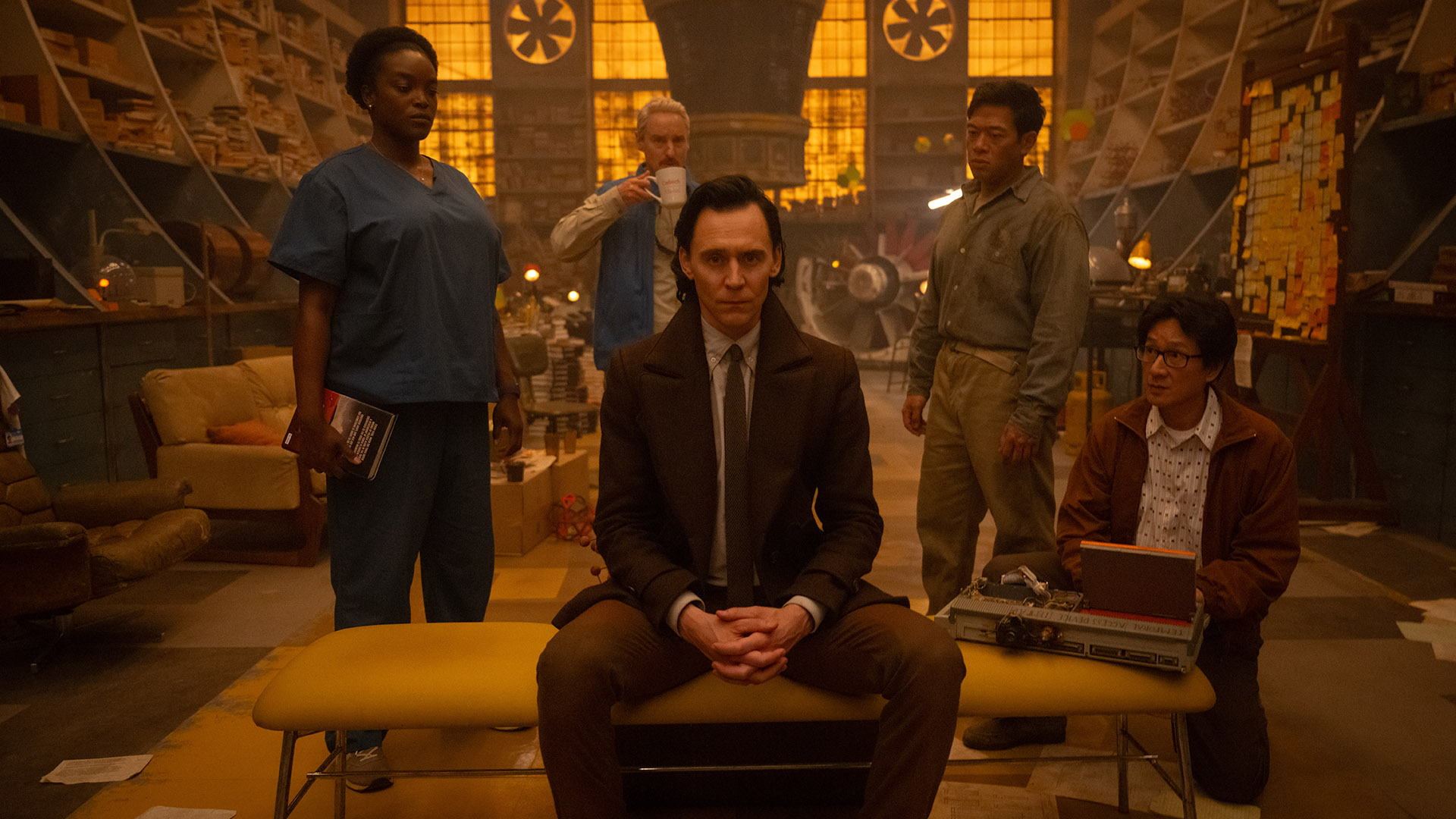GamesRadar+ Verdict
A busybody penultimate episode intent on being everywhere at once just ends up going nowhere.
Why you can trust GamesRadar+
It’s a strange time to engage with Marvel’s Loki this week. In case you haven’t caught wind, trade publication Variety published on Wednesday a buzzy feature about the waning grasp of Marvel Studios over Hollywood and its once-attentive audience. So, it’s painfully ironic that season 2 of Loki has been all about the imminent collapse of interwoven, convoluted continuities that seem to vanish in an instant, with the people working inside – ostensibly tasked with controlling it all – now desperately seeking a solution for stability.
Science/Fiction, the penultimate episode of season 2 written by Eric Martin and co-directed by Justin Benson and Aaron Moorhead, is no salve for the MCU. Lumbering and drab with a dissatisfying resolution so saccharine it’s a miracle Tom Hiddleston isn’t in a diabetic coma, Science/Fiction feels like a pale imitation of mid-tier Doctor Who that doesn’t even soar to the same triumphant notes. That the episode puts a tight spotlight on its rare collection of top-tier actors (people who are legit Emmy nominees and Oscar winners) who come off just as lost as their characters only magnifies the larger problems corroding this franchise. It doesn’t matter how many resources Marvel throws at the screen. When none of it sticks, it all just feels like loose strings floating in the air.
Lost to time

Picking up in the immediate aftermath of last week’s installment that ended with Victor Timely (Jonathan Majors) being abruptly pruned from existence (I’m sure Marvel is wishing it were that easy to be rid of somebody so intrusive), Science/Fiction opens in close-up on the enchanting eyes of Hiddleston’s Loki. Lest we forget, Loki is still this man’s show, and he’s come a long, long way from being the weird bad guy of The Avengers.
The unstable energy of the timelines has basically swallowed up the TVA, but Loki’s season-long problem of time-slipping seems to have saved him – for now. As the episode unfolds, Loki appears in various corners of the timeline, showing up within spitting distance of all the TVA faces he knows and loves, seeing them live their true lives. To wit, Eugene Cordero’s 'Casey' is actually Frank, a 1960s Alcatraz escapee, while Ke Huy Quan’s 'Ouroboros' is A.D. Doug, a failing sci-fi author in 1994 Pasadena. And so on. And yes, we learn why Owen Wilson’s Mobius loves jet skis, and no, it isn’t interesting in the slightest.
Like a heist episode, Science/Fiction is structured around collecting all who matter to Loki, which gives audiences still watching the series a glimpse into their humdrum, regular, outside-the-TVA lives. There are also pronounced parallels to Phase One Marvel, with Loki the de facto Nick Fury bringing together a group of un-remarkable people. That they disappear like Thanos’ Snap in its own streaming reboot reinforces a full circle nature Loki seems to want to evoke, but for what reason is unclear.
Never mind that there isn’t a particularly compelling reveal in the bunch that makes this excursion worthwhile. It’s not that Mobius should have actually been a Hand ninja or whatever. But it’s the glaring lack of a point to it all that drags Science/Fiction into the mud. We know TVA agents would have rebelled against Kang to live these lives. The tragedy, I suppose we’re meant to glean from this, is that knowing what lies on the other side isn’t always better. Too bad Loki completely forgets to make this point at all.
Time-slipping away...

The few bright spots in Science/Fiction are attributed to the same bright spots that have made Loki more watchable than other recent Marvel efforts. Ke Huy Quan remains the best part of the new season, with a reliably committed performance that just feels like sunshine, and Tom Hiddleston and Sophia di Martino continue to have dynamic chemistry that can make even the most unengaged viewer wonder when they’ll kiss again. There’s also a welcome spaciousness to Science/Fiction; see Loki standing on Mobius’ suburban front lawn and realize just how suffocating the TVA set has felt all season.
But predictably good performances, middling location diversity, and a poetic Velvet Underground needle drop meant to illustrate Sylvie’s relationship to Loki himself cannot absolve Science/Fiction from its worse aspects. Sleepy direction and a script crammed full of unintelligible jargon makes this wholly indicative of where the MCU is at right now. The good ideas are there, somewhere. They’re just lost to time.
Loki season 2 is streaming now on Disney Plus. Ensure you don't miss an episode with our Loki season 2 release schedule guide. For more on the MCU show, check out our deep-dives on:
- Loki season 2 guide
- When does Loki season 2 take place on the Marvel timeline?
- Loki season 1 recap
- How to watch the Marvel movies in order
- Marvel Phase 5
- Upcoming Marvel movies and shows
- Victor Timely comic book history explained
- He Who Remains comic book history explained
- The Time Variance Authority comic book history explained
- Mobius comic book history explained
- Sylvie comic book history explained
- Loki season 2 episode 1 post-credits scene explained
- What is time-slipping?
- All the differences between comic book Loki and show Loki
- Loki season 2 episode 1 recap and Easter eggs
- Loki season 2 episode 2 recap and Easter eggs
- Loki season 2 episode 3 recap and Easter eggs
- Loki season 2 episode 4 recap and Easter eggs
- What’s Sylvie holding at the end of episode 2?
- Brad Wolfe isn't the Zaniac fans know from the comics
- What is the Zaniac in Marvel Comics?
More info
| Genre | Superhero |

Eric Francisco is a freelance entertainment journalist and graduate of Rutgers University. If a movie or TV show has superheroes, spaceships, kung fu, or John Cena, he's your guy to make sense of it. A former senior writer at Inverse, his byline has also appeared at Vulture, The Daily Beast, Observer, and The Mary Sue. You can find him screaming at Devils hockey games or dodging enemy fire in Call of Duty: Warzone.



